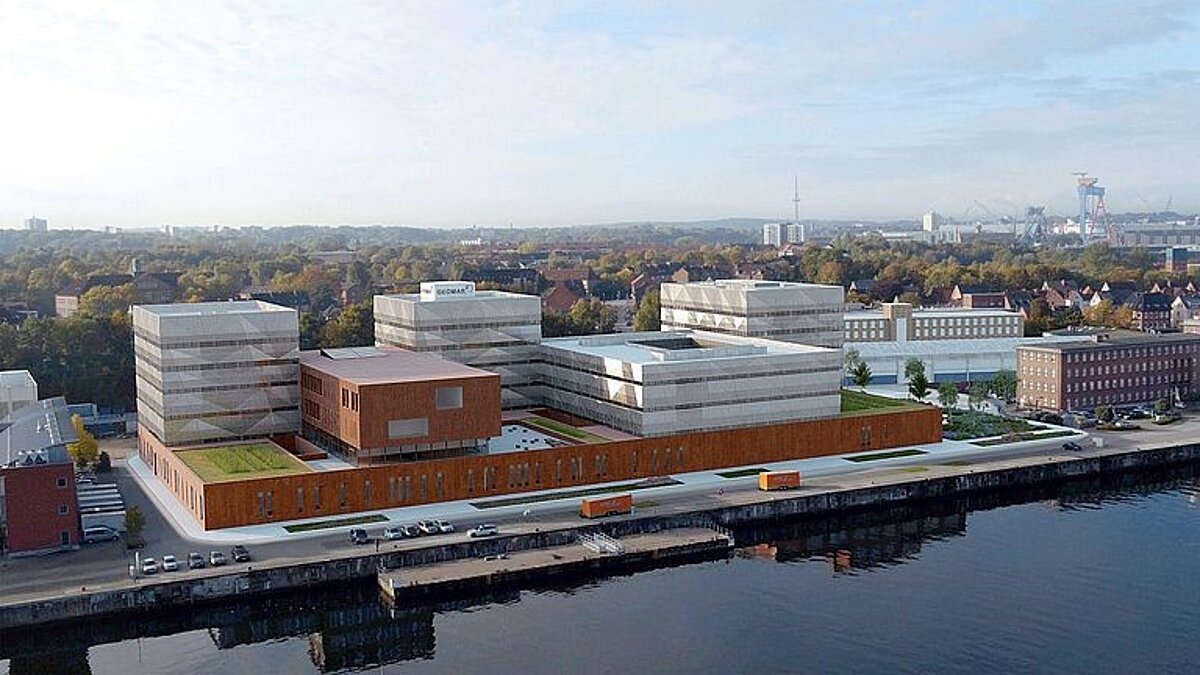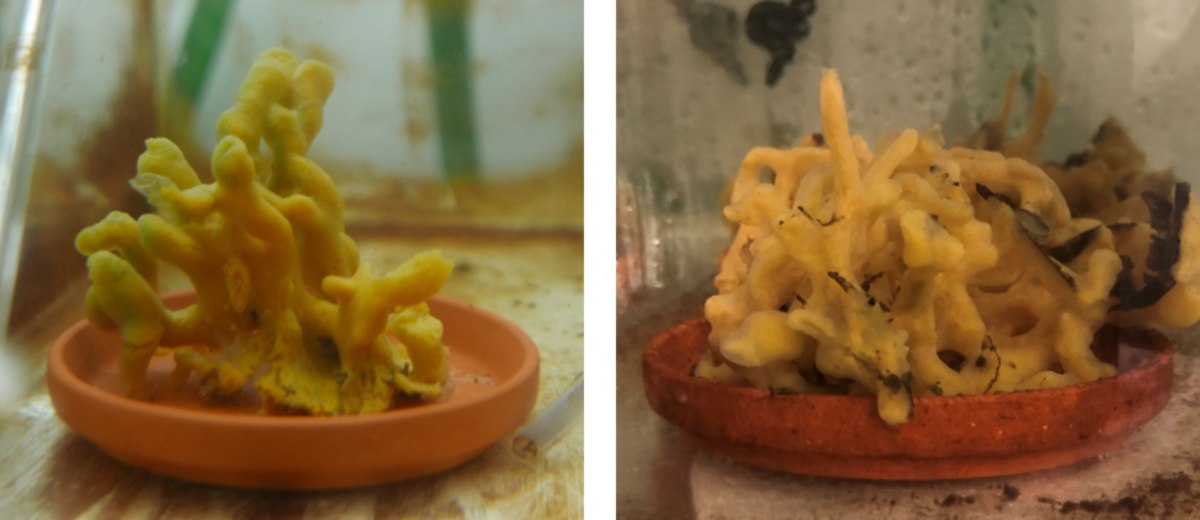Lichtabhängige Veränderungen des Mikroalgengehalts im Mikrobiom des Ostseeschwamms Halichondria panicea und deren Auswirkungen auf das Überleben des Schwamms während Hitzewellen (Arbeitstitel)
Dr. Kristina Bayer, GEOMAR
Dieses Projekt geht der langjährigen Beobachtung nach, dass der Ostseeschwamm H. panicea in zwei Farbmorphen vorkommt, von gelb bis grün. Grüne Schwämme sind typischerweise in lichtexponierten Bereichen zu finden, während gelbe Farbmorphen unter Felsen und in Felsspalten zu finden sind. Erste unveröffentlichte mikroskopische Beobachtungen ergaben, dass in grünen Schwämmen deutlich mehr Kieselalgen und Mikroalgen vorkommen als in gelben Schwämmen. Zunächst konnten wir die Fluoreszenz-aktivierte Zellsortierung (FACS) einsetzen, um die Häufigkeit von Photosymbionten in grünem und gelbem Schwammgewebe während verschiedener Jahreszeiten zu quantifizieren. Darüber hinaus werden wir zusätzliche Analysen auf der Grundlage von 16S rRNA- und 18S rRNA-Genamplikonsequenzen an gelben und grünen Schwammindividuen durchführen, die in verschiedenen Monaten des Jahres gesammelt wurden, wobei die Probenahmen während der Sommerhochsaison verstärkt werden. Dadurch wird die Vielfalt der prokaryotischen und eukaryotischen Mikroorganismen, die den Schwamm gemeinsam bewohnen, sichtbar gemacht. Außerdem soll festgestellt werden, ob jahreszeitliche Veränderungen bei den photosynthetischen Mikroorganismen mit potenziell schädlichen Auswirkungen auf das Kernmikrobiom und damit auf den Schwammholobionten korrelieren. Diese Bemühungen werden neue Erkenntnisse darüber liefern, ob Veränderungen des Mikroalgengehalts während der warmen Jahreszeit Auswirkungen auf die Gesundheit und/oder Krankheiten des Schwamms haben könnten, insbesondere während Hitzewellen, die beobachtet wurden.
Diese Masterarbeit ist Teil eines gemeinsamen DAAD-Projekts mit Partnern aus Portugal, das auch die Möglichkeit zum Austausch bieten könnte.
Interessierte Kandidat:Innen wenden sich bitte an Kristina Bayer (kbayer@geomar.de) oder Ute Hentschel (uhentschel@geomar.de) für weitere Informationen. Die Arbeit sollte spätestens im März 2025 beginnen.






